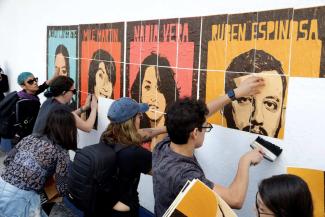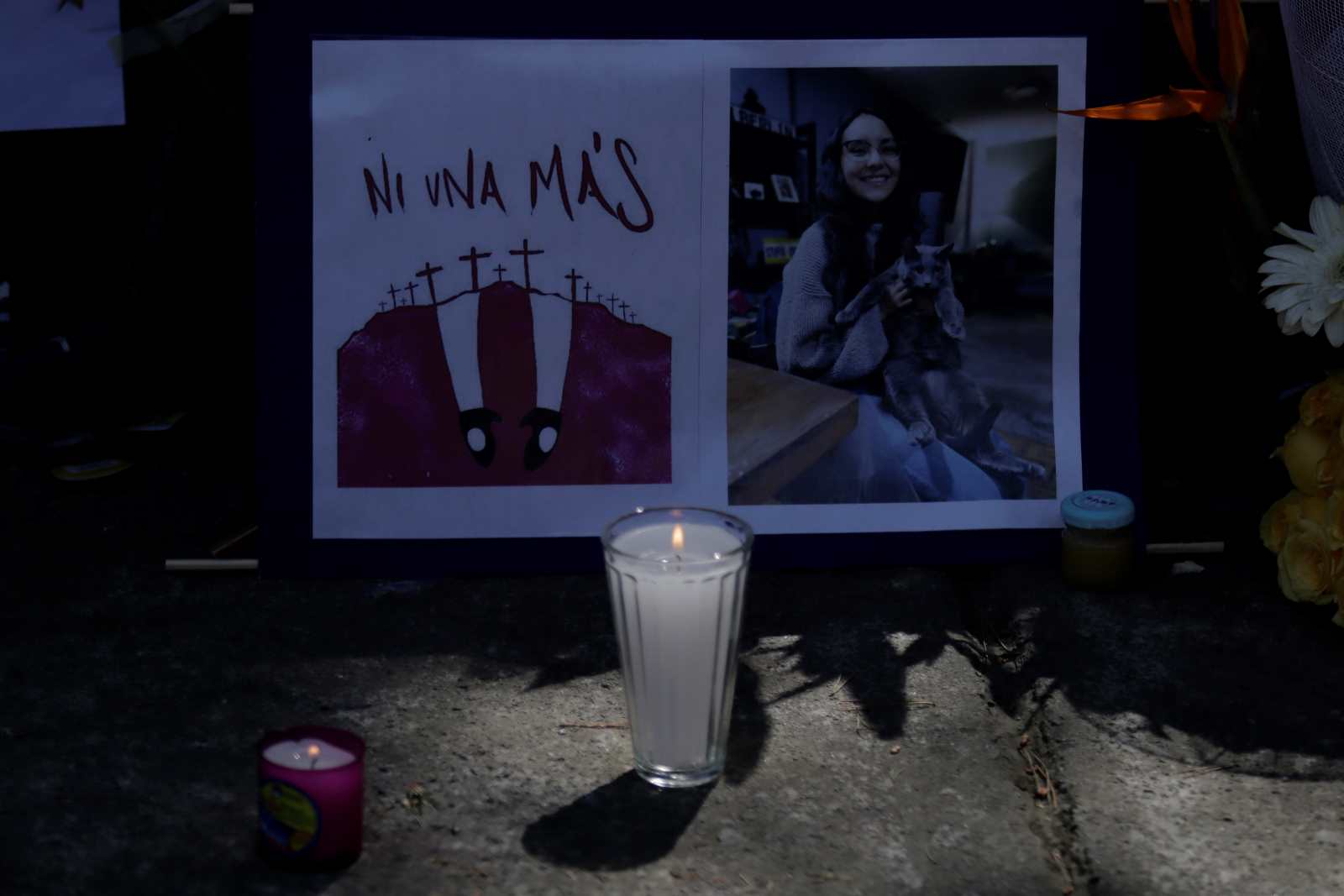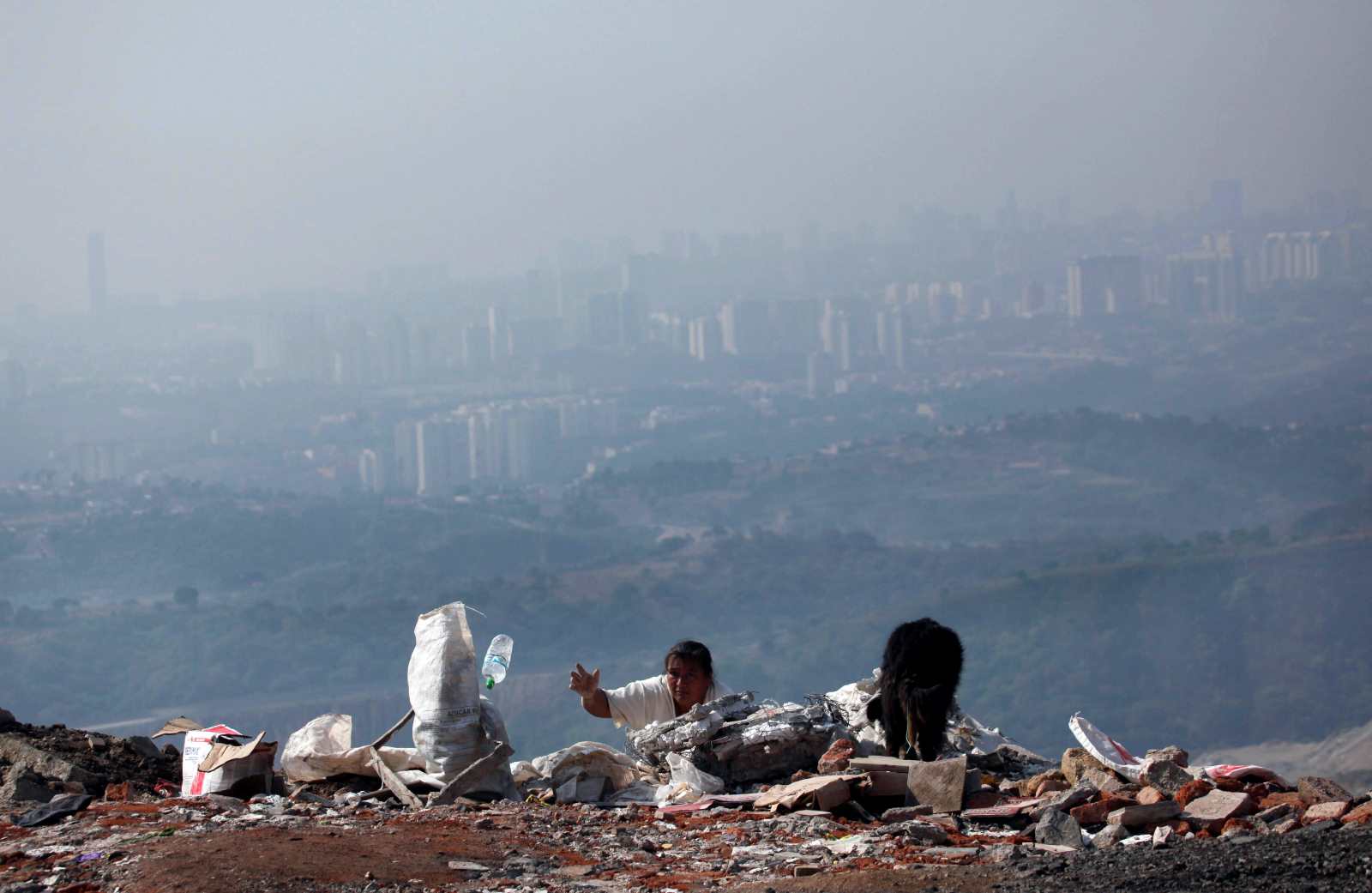Rule of law
Mexico needs opportunities, not violence

When President Andrés Manuel López Obrador’s administration took office in 2018, it promised “hugs instead of bullets”. The motto stood for a new response to organised crime and the rampant violence that haunts the country. At least rhetorically, the new government took a different tack from previous ones, which had focused primarily on confrontation and militarising the fight against organised crime. Its approach also differed radically from that adopted further south in El Salvador, where President Nayib Armando Bukele Ortez is taking tough, headline-grabbing action against drug trafficking and gang violence. Videos circulating on social media show suspected gang members imprisoned en masse.
A different solution was sought for Mexico. “We want peace,” López Obrador proclaimed. Instead of the “war on drugs” that his predecessors waged, he wanted to create educational opportunities and prospects for young people. Instead of spectacular arrests, he wanted falling crime rates to be his measure of success. Such rhetoric was one of the reasons he was elected.
Unfortunately, the Mexican public’s high expectations have yet to be met. The number of unpunished crimes is rising. Distrust of the justice system and the level of public dissatisfaction is rising accordingly. At the end of the last legislative period in 2018, public confidence in the Public Prosecutor General’s Office had reached an all-time low, with just over half of the population (57.5 %) having “some” or “a lot” of confidence in the institution. After the new government took office, the National Institute of Statistics and Geography (INEGI) found that the figure initially rose, peaking at 65.8 % in 2021, but has been falling again since then. That slide could continue through to the end of the government’s term of office.
There are several reasons why people distrust the justice system. Two stand out in particular: The first is the inefficiency of law enforcement. Many Mexicans believe that rule of law is successful only if crime is punished severely; very few believe in rehabilitation or social reintegration. The second reason is corruption: people have the feeling that only a minority are ultimately held accountable by the law.
Not enough personnel, not enough training
One of the main reasons for the inadequacy of law enforcement is that the judicial system is overburdened and under-resourced. As a result, many criminal proceedings are dropped and offenders acquitted. According to INEGI, over 2 million preliminary proceedings were opened across the public prosecution system in 2019, which meant a massive workload for the limited number of public prosecutors. On average, 290 cases landed on each prosecutor’s desk. Since then, the situation has deteriorated further. As the Global Impunity Index for Mexico shows, the number of public prosecutors per thousand registered offences fell from nine in 2018 to 8.58 in 2022.
The picture is not much better when it comes to security agencies. Mexico City is the federal state with the most favourable manpower level: 3.7 police officers per thousand population. In the most populous state, Estado de México, the figure is just 0.9 officers.
There is also a shortage of properly trained personnel. It starts with the first investigators on the scene. Many of them have only a low level of education – usually secondary school qualifications –, and they are paid poorly for dangerous work. Their action is often guided by the widely held notion that anyone who breaks the law has no rights. If, however, they arrest a suspected person without following all required procedures, the suspects must be acquitted. That is especially the case when security forces commit human-rights violations during an arrest.
Corruption and impunity
Another cause of impunity is corruption. Its range is wide, from bribes for the cover-up of minor offences to large illicit payments in cases of serious malfeasance involving government officials and private-sector companies. Those who can afford a good lawyer or have connections inside the judiciary often escape punishment. The result is often impunity for the privileged, and that, in turn, breeds a sense of injustice among the general public.
Most crimes are not reported in the first place because people feel that “nothing will be done”, so offenders will not face justice. Fear of retribution matters too. The National Survey on Victimization and Perception of Public Safety suggests that more than 90 % of crimes went unreported in 2021. That included serious crimes like kidnappings, where the estimated number of unreported cases is 98.6 %.
Even if a crime is reported and investigated, there is only about a 50 % chance of successful prosecution, as surveys tell us. However, photographs and videos showing criminals in the act are widely shared on social media. They boost the public’s sense of frustration with authorities that fail to bring offenders to justice despite clear evidence.
Countering the cartels
One of the main criticisms levelled at the present government is that drug cartels are able to operate with widespread impunity. Video footage from September 2023 shows residents of a municipality in Chiapas apparently welcoming gunmen form Sinaloa cartel for “saving them” from another cartel. State authorities are barely present in such areas, so it seems that no one can stand up to a criminal organisation except another criminal organisation. The slogan “hugs instead of bullets” is no longer only belittled by the opposition. It is losing credibility among the government’s supporters.
Impunity and corruption are nothing that started in the current legislative period. A particularly sensational instance of both was the case of “supercop” Genaro García Luna. He was one of the highest-ranking officials in the war on drug gangs as Mexico’s secretary of public security from 2006 to 2012 under President Felipe Calderón. He stayed close to President Enrique Peña Nieto’s government from 2012 to 2018. He is now on trial in a US court, charged with collaborating cartels and protecting them. He obviously used his time in office to commit crimes from the highest echelons of power with complete impunity. His former bosses say they knew nothing about his illicit dealings, even though the “war on drugs” that he conducted was clearly ineffective.
Another crucial matter is the independence of judges. President López Obrador has recently been voicing more and more criticism of the judicial authorities, denouncing their privileges and condemning corruption. One such case was when the navy reported that half of the people it arrested for drug trafficking or fuel theft between 2021 and 2023 had been released on court orders – and some went on to re-offend. The full truth, however, is that such orders often result from investigative shortcomings. They may often be the consequence of pressure exerted on judicial staff by organised crime. It is common knowledge that gangs intimidate judges, for instance by threatening their families and friends. At least eight federal states are considered a high-risk environment. Anyone working on organised crime cases there needs special protection.
Fighting crime is a massive challenge for Mexico. The people long for an end to the violence and insecurity. So, they obviously turn their eyes to El Salvador: Might its approach work? Would it be appropriate for Mexico? Is any price too high for finally putting an end to crime?
What these people tend to disregard is that repressive crackdowns on gang violence have a considerable price, with human-rights violations being tolerated and innocent persons ending up in jail. Do we really want to accept that as collateral damage? Most people in Mexico still favour less draconic approaches. They may not worry much about human rights in principle – but they do not trust the security forces. Accordingly, they do not want to see them empowered to take even more arbitrary decisions.
Virginia Mercado is a researcher at the Universidad Autónoma del Estado de México and an instructor in peace and development studies.
virmercado@yahoo.com.mx










